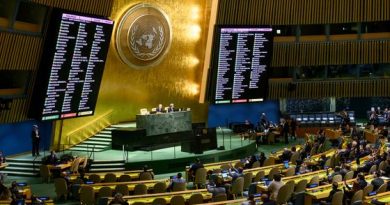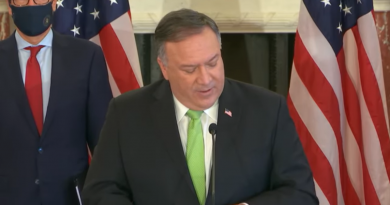Putin’s Visit to India Complicates Geopolitical Relations with the United States and China
Joshua Powanda
Staff Writer
On Monday, December 6, Russian President Vladimir Putin traveled to India to meet with Prime Minister Narendra Modi and discuss the maintenance and growth of relations between the two states. In just his second international trip since the global emergence of COVID-19, Putin’s arrival comes amid complex geopolitical developments throughout Asia.
During the meeting, President Putin and Prime Minister Modi discussed pressing issues including defense, trade, terrorism, and future stability in Afghanistan. Additionally, The Associated Press reports that the leaders have signed several investment pacts aimed at strengthening ties between the two countries, including one that will see India produce more than 600,000 Kalashnikov assault rifles. Along with the deal for India to produce AK-203 assault rifles, Russia said it would continue providing S-400 air defense missile systems, raising concerns for the United States.
According to Al Jazeera, the deal with Moscow puts India at risk of sanctions from the U.S. under a 2017 U.S. law aimed at deterring countries from buying Russian military hardware. In 2020, the Trump administration imposed sanctions against Turkey for a similar purchase of sophisticated Russian defense equipment. Despite India’s concerns about American sanctions, the deal signals that India is more worried about China and Pakistan becoming more emboldened at their respective shared borders. The New York Times highlights that India may have decided that the U.S. would not penalize the country for buying the defense system given these perceived threats from their neighbors. This contention highlights the geopolitical reality in Asia and the security concerns of India, Russia, and the United States.
Russia has sought to maintain India’s friendship and economic cooperation, given the recent QUAD alliance and close relationship with the United States. Putin sees this visit to New Delhi as vitally important in light of growing Indian-American coordination on regional issues, which he sees as a threat to Russian influence and defense cooperation in the region. Despite this recent cooperation with the U.S., India sees the purchase of Russian defense systems as critical to its own national security. Due to recent border disputes and military confrontations with China in the contested Himalayan region, Al Jazeera reports that this further Indian-Russian defense cooperation is a systematic means for India to address a rising threat from its neighbors.
India has bought Russian defense systems for a variety of reasons, including historic defense purchases, growing disputes with China, and expensive alternatives coming from the U.S., Israel, and other providers. Even though the country has diversified its weapons imports through closer defense and economic relations with the U.S. and cooperation on issues related to China, India still relies on Russia for about half of its arms supplies. This reliability dates back to 70 years of cooperation between India and the Soviet Union. According to Indian Express, estimates say nearly 65 percent of India’s military supplies are from Russia, many of which are spare parts from the Russian defense sector.
According to Reuters, a joint statement published after the Putin-Modi talks said Russia and India had “reiterated their intention to strengthen defense cooperation, including in the joint development of production of military equipment.” This increasing defense relationship may negatively affect Russo-Chinese relations, which have expanded recently due to growing American influence in Asia. Given the strained relationship between India and China, Russia’s armament of New Delhi may raise questions regarding the reliability of the newly formed partnership between Moscow and Beijing.
Image courtesy of Narendra Modi (Flickr)


